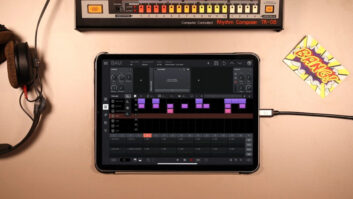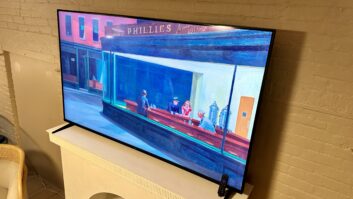New York — Consumers with an iPod introduced in September 2007 might encounter some difficulties if they dock it with an speaker or docking system that was purchased in 2007 or earlier.
The culprit is an authentication chip embedded in the latest generation of iPods and required by Apple to be installed in new iPod speaker systems and in other new iPod accessories with video outputs. The chip isn’t required for speaker systems or docks that lack video outputs.
The video outputs of current- and previous-generation iPod speaker systems and docks, including models sold during the Christmas 2007 selling season, may not work if consumers plug in one of the new iPods, suppliers told TWICE. Select iPod speakers systems that companies plan to introduce next week at International CES, however, won’t have that problem.
The chips were designed by Apple to thwart manufacturers that make unlicensed iPod speaker systems and accessories, thus helping licensed suppliers and retailers maintain their margins, suppliers explained. In what could be an unintended consequence, however, the chip in the new iPods could disable the video outputs of certain older-generation speaker systems and docks that were properly licensed by their suppliers at the time and are already in many consumers’ hands.
Video outputs have been included in a high percentage of iPod speaker systems priced at more than $129 and on select iPod docks, suppliers said. The outputs are designed to display an iPod’s video content, music metadata and menus on a connected TV screen.
When a new iPhone or iPod Touch is docked with a previous-generation speaker system or dock, the accessory’s video outputs won’t work at all, said Robert Heiblim, Altec Lansing senior marketing VP. If a new iPod Classic or Nano is docked with a previous-generation speaker system, only the S-Video output will work, Heiblim said. If the older speaker system or dock has only a composite-video output, the consumer is out of luck.
The newest iPods won’t support any accessories’ composite-video outputs, Heiblim noted.
Audio playback is unaffected by the authentication chip, so music stored on any generation iPod will play back through iPod speaker systems and docks of any generation, he said. An authentication chip has been used in Microsoft’s Zune and Zune speaker systems from the start, he noted.
In new licensed accessories with video outputs, Apple requires the use of any one of three classes of authentication chip, each offering different levels of capabilities. The class 5 chip, for example, enables an iPod speaker system to operate as a hands-free system for a docked iPhone, which will mute music playback when a call is received. The other chip classes, classes 2 and 3, enable iPhone playback but put the iPhone in airplane mode when docked, turning the phone’s cellular circuitry off.
When Apple launched its latest iPods, iPod accessory vendors and retailers were unaware that the models would disable the video outputs of select accessories already in their inventories for the crucial Christmas selling season and were nervous about selling accessories that were not fully compatible with the new iPods, Heiblim said.
At CES, multiple companies will introduce iPod speaker systems with the authentication chip. Apple didn’t respond to a TWICE inquiry about the issue.













